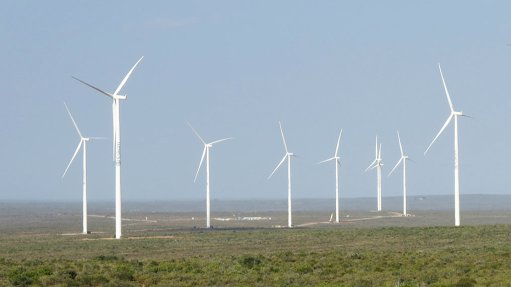Enabling fair trade
Assuming you are reading this piece on its date of publication, in 34 days’ time, the International Trade Administration Commission of South Africa (Itac) will be celebrating its twentieth year of existence. Your initial reaction might be to grab a pen and diarise the date, as next year will be Itac’s coming of age celebration – its twenty-first birthday.
But by doing so you would be selling Itac’s history short, for Itac – by standing on the shoulders of giants – would in fact be celebrating its centenary. According to the commission’s website: “Itac replaced its predecessor, the Board of Tariffs and Trade (BTT), that was established in 1986. The predecessor of the BTT was the Board on Trade and Industries (BTI) that dated back to 1924.” If you favour the details, the BTI was established on September 10, 1924, and replaced on September 24, 1986, by the Board of Trade in Industry (unhelpfully, with the same acronym, BTI), which was replaced by the BTT on May 6, 1992, before being replaced by Itac on June 1, 2003.
Itac’s mandate is “to foster economic growth and development to raise income and promote investment and employment in South Africa and within the Common Customs Union Area by establishing an efficient and effective system for the administration of international trade subject to this Act and the Southern African Customs Union (Sacu) Agreement. The core functions are customs tariff investigations, trade remedies and import and export control.
The commission meets once a month to evaluate investigations conducted by its investigators and make recommendations to the Trade, Industry and Competition Minister. This Ministry was established after the merger of the Department of Trade and Industry and the Economic Development Department. The International Trade Administration Act, 2003, provides for a full-time chief commissioner, a deputy chief commissioner and a maximum of ten commissioners who can be appointed to serve on a part-time basis. The commissioners come from diverse backgrounds.”
Itac’s vision is to be “an institution of excellence in international trade administration, enhancing economic growth and development”. It is guided by these core values: integrity, trust, accountability and commitment.
So, how familiar are you with the trinity of Itac’s core functions: tariff investigations, trade remedies, and import and export control?
Tariff investigations are focused on duty increases, duty reductions, duty rebates, duty drawbacks, and duty refunds. “The objectives of the Tariff Investigations Unit are to promote, in a complementary manner, domestic production, job retention and creation, and international competitiveness. This is done by investigating applications for rebate and drawback permits and for tariff relief and support. The process of applications is rigorous and evidence-based and includes extensive research, verifications, preparation of written submissions and assessment of the merit of the applications.”
Trade remedies include antidumping, countervailing (anti-subsidy), and safeguards. “Itac is the authority responsible for trade remedies in South Africa. The Trade Remedies Unit administers the trade remedies instruments through investigation of alleged dumping, subsidised imports and a surge of imports into the Sacu region, in accordance with domestic legislation and consistent with World Trade Organisation rules. These instruments are a critical government intervention to retain jobs and promote investments.”
With respect to import and export control measures, Itac states: “Essentially [these] are applied to enforce health, environmental, safety, and technical standards that arise from domestic laws and international agreements, such as the Montreal Protocol on Substances that Deplete the Ozone Layer, the Basel Convention on the Control of Transboundary Movements of Hazardous Wastes and Their Disposal, and the 1988 United Nations Convention Against the Illicit Traffic in Narcotic Drugs and Psychotropic Substances.”
Article Enquiry
Email Article
Save Article
Feedback
To advertise email advertising@creamermedia.co.za or click here
Announcements
What's On
Subscribe to improve your user experience...
Option 1 (equivalent of R125 a month):
Receive a weekly copy of Creamer Media's Engineering News & Mining Weekly magazine
(print copy for those in South Africa and e-magazine for those outside of South Africa)
Receive daily email newsletters
Access to full search results
Access archive of magazine back copies
Access to Projects in Progress
Access to ONE Research Report of your choice in PDF format
Option 2 (equivalent of R375 a month):
All benefits from Option 1
PLUS
Access to Creamer Media's Research Channel Africa for ALL Research Reports, in PDF format, on various industrial and mining sectors
including Electricity; Water; Energy Transition; Hydrogen; Roads, Rail and Ports; Coal; Gold; Platinum; Battery Metals; etc.
Already a subscriber?
Forgotten your password?
Receive weekly copy of Creamer Media's Engineering News & Mining Weekly magazine (print copy for those in South Africa and e-magazine for those outside of South Africa)
➕
Recieve daily email newsletters
➕
Access to full search results
➕
Access archive of magazine back copies
➕
Access to Projects in Progress
➕
Access to ONE Research Report of your choice in PDF format
RESEARCH CHANNEL AFRICA
R4500 (equivalent of R375 a month)
SUBSCRIBEAll benefits from Option 1
➕
Access to Creamer Media's Research Channel Africa for ALL Research Reports on various industrial and mining sectors, in PDF format, including on:
Electricity
➕
Water
➕
Energy Transition
➕
Hydrogen
➕
Roads, Rail and Ports
➕
Coal
➕
Gold
➕
Platinum
➕
Battery Metals
➕
etc.
Receive all benefits from Option 1 or Option 2 delivered to numerous people at your company
➕
Multiple User names and Passwords for simultaneous log-ins
➕
Intranet integration access to all in your organisation

















